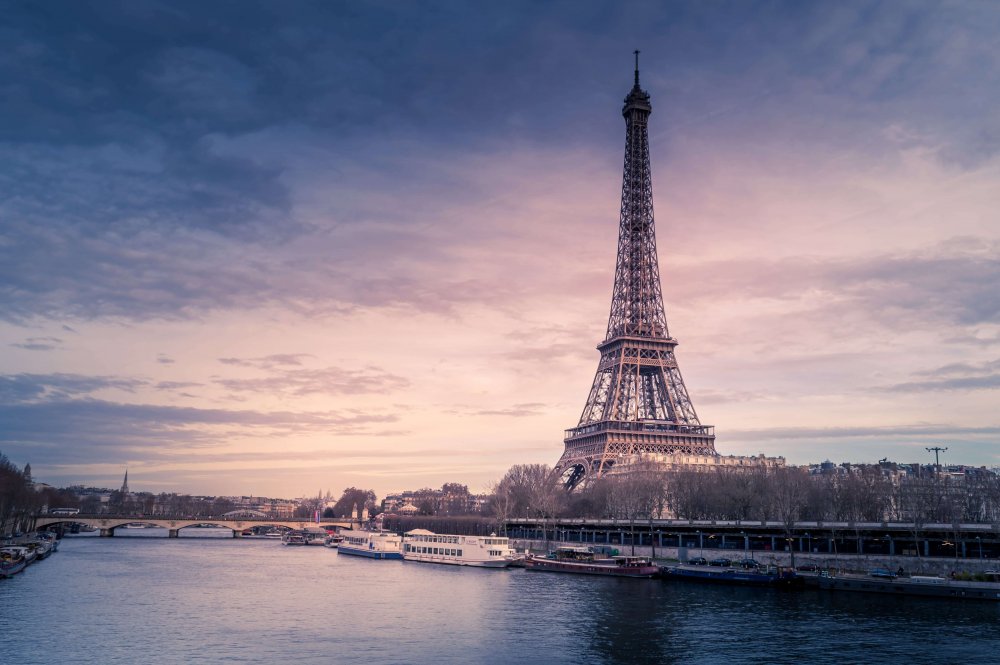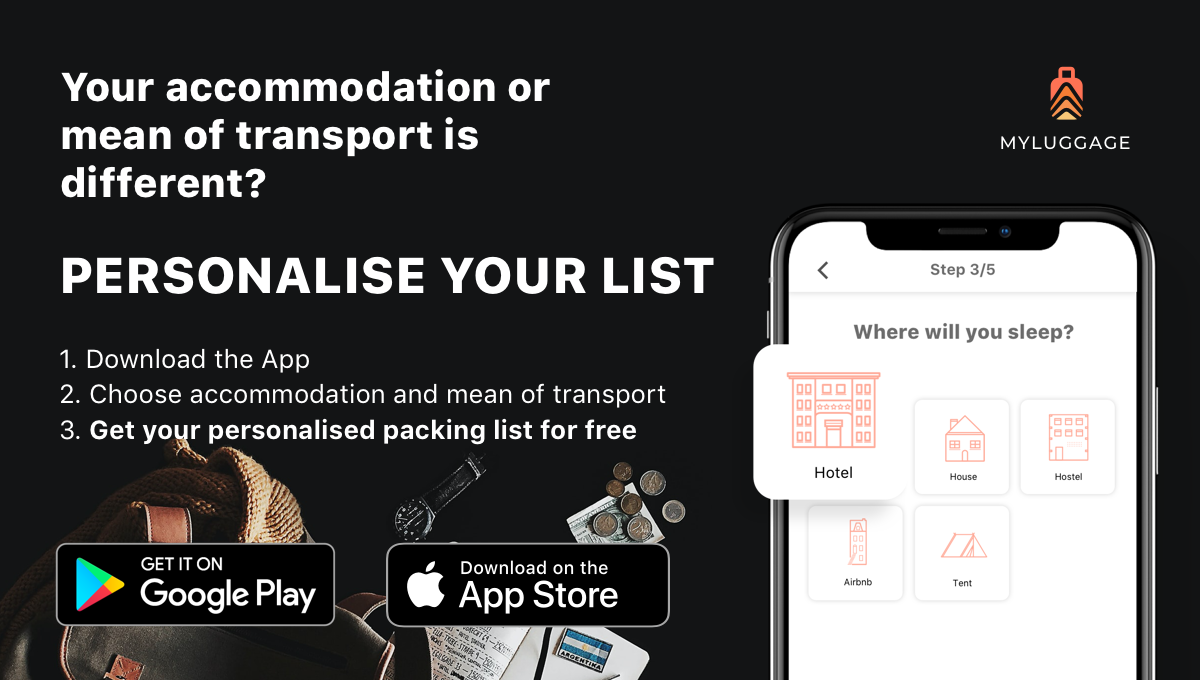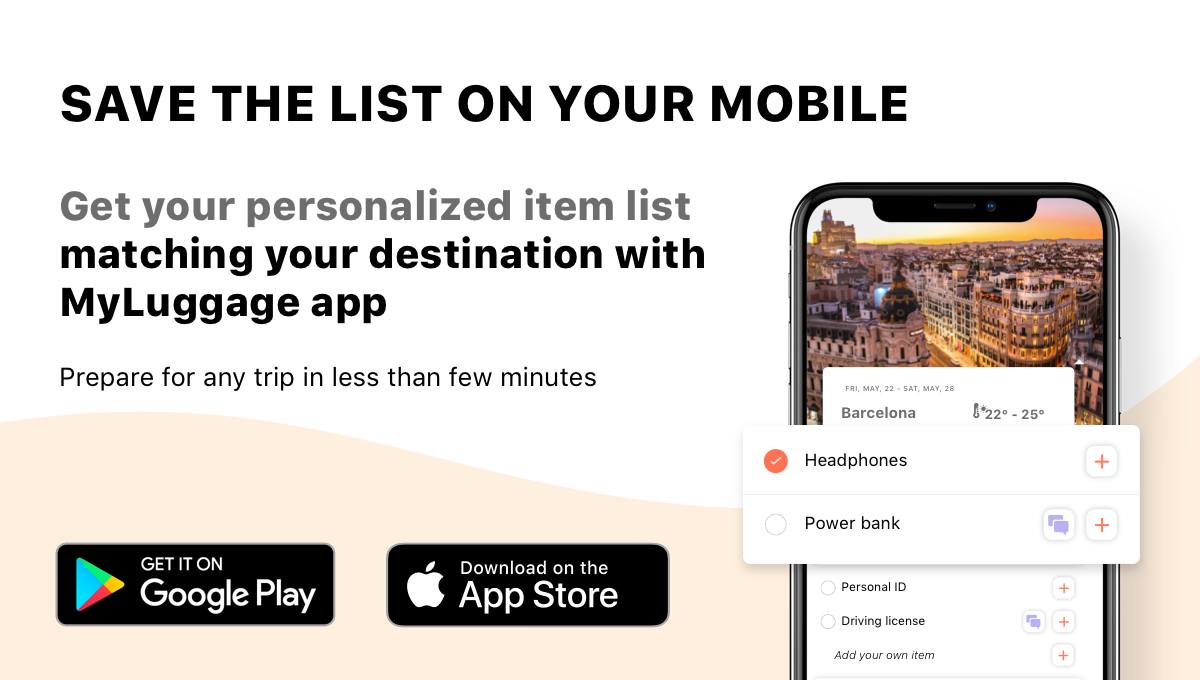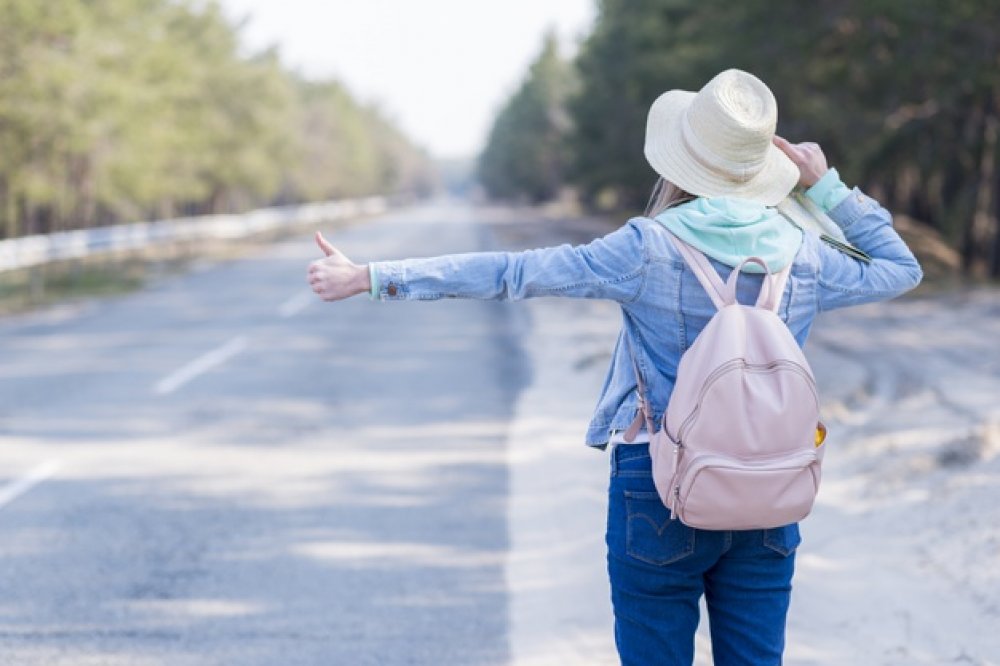
Travel guide
Wine, Eiffel Tower and fashion - for most of us, these are the first things that come to mind when we hear about France. It is a dream destination for many people! No wonder - from the bustling, romantic Paris, through the picturesque Cote d'Azur to the Alps - everyone will find something for themselves here. We have prepared a guide for you, thanks to which you will find out what to pack when going on vacation to France, what to eat and you’ll learn some practical tips that will make your trip unforgettable. Check it out!
Travel Information
|

|
Destination
|
Leisure and sightseeing
|
|

|
Trip length
|
3 nights |
|

|
Transport
|
Car
|
|

|
Sleep
|
Airbnb
|
|

|
Luggage
|
Suitcase
|
The most useful items
Depending on the purpose of your trip, it is worth remembering to pack a few necessary elements of the suitcase. We decided to plan a city break in Paris for - see and find out what are the most useful items for such a trip!
- Masks and antibacterial gel - recent months have shown us that both masks and antibacterial gel are inseparable elements of our luggage when we want to ensure the safety of our travel companions and people around us. Remember to have at least two single-use masks with you for each day of your stay.
- ID card - because France belongs to the European Union, the document we need to cross the French border is only an ID card - we do not need a passport or a visa (if our departure will be shorter than 90 days). Remember that if you plan to rent a car on site - you must have a driving license with you.
- Euro - it’s the currency in France. Euro has replaced the French franc. In larger cities, you won't have any problems with card payment, but bring a change in euro for tips. Also, consider getting a currency card that will help you avoid conversion fees.
- ISIC card - if you are a student, it entitles you to many discounts - for example when buying tickets to a museum. People up to 26 years of age are entitled to cheaper travel by public transport, for example by trains, which are extremely popular in France.
Packing list
LUGGAGE TYPE: Suitcase
DOCUMENTS
- Travel insurance
- Wallet
- Health insurance
- ID card
- Credit card
- House keys
- Cash

UNDERWEAR
- Socks x3
- Pants x3
- Sleepwear / Pajamas
SHOES
- Flip-flops / slippers
- Comfortable shoes
CLOTHES
- T-Shirt x2
- Trouser belt
- Summer jacket
- Hoodie
- Trousers
COSMETICS
- Shower gel
- Shampoo
- Toothbrush
- Toothpaste
- Perfume
- Antiperspirant
FIRST AID KIT
- Contraceptives
- Prescription drugs
- An anti-diarrheal drug
- Painkiller
- Pills for sore throat
- Patches
ACCESSORIES
- Hairband
- Power bank
- Phone
- Glasses box
- Sunglasses
- Telephone
- Cotton mask
- Headphones
- Phone charger

What should you eat when visiting France?
French cuisine is delicious and known all over the world. It is mainly associated with dishes full of butter and salt. You cannot forget about the excellent French bread, wine and cheese! Check what to eat when visiting France.
- Onion soup - a true classic of French cuisine! Hot, aromatic and filling, served with delicious cheese croutons. Its preparation is quite simple - it consists of broth, lots of butter, flour and, of course, onion. The selection of spices will please even the most sophisticated taste buds!
- Boeuf Bourguignon - something for beef fans. It is a delicious, thick beef stew with mushrooms and red wine. Long-cooked meat literally melts in your mouth!
- Crepes - French pancakes! Very large, paper thin, served both sweet - for example with powdered sugar and strawberries - and salty. This dish is especially popular in Brittany.
- Quiche Lorraine - a French version of fast food! A perfect dish to catch on the run while visiting museums or photographing beautiful architecture. It is a stuffed, shortcrust pastry - with ham, bacon and cheese, for example, or goat cheese and eggplant.
- Croque monsieur and croque madame - an excellent choice for breakfast. Nowhere does it taste as good as in France! These are toasts with ham or with an egg.
- Mussels and other seafood - the French are true champions when it comes to preparing exquisite seafood dishes! If you like such dishes, be sure to try the fresh mussels in white wine or in a Provencal sauce. They taste best in the north of France!
- French cheeses, wine and bread - as many regions, as many kinds. So, instead of reading about them, it's best to just go to your local store or market and talk to the sellers about what they can recommend to you.
.jpg)
How much money should you take with you?
When going on vacation to France, especially when visiting larger cities, we must be ready for quite large expenses.
- If we are ready to spend the night in a hostel in a dormitory room without a bathroom in the room, we will spend about 20-30 euro for a night in France. The price of accommodation in a double room in a cheaper hotel is about 50-90 euro. In the case of larger hotels of a higher standard, we must be ready to spend 100 euros upwards.
- A meal in a cheaper restaurant will cost us around EUR 12-20, and if we choose street food - we will spend around EUR 5-10.
- For a glass of wine or a bottle of beer in a restaurant, we will pay 4-5 euro upwards.
- You will pay about 10-15 euros for entry to larger attractions, such as the Catacombs of Paris, the Louvre or the Pantheon.
- A single ticket for public transport in Paris costs 1.5-3 euro.
Safety
- There is a second degree of terrorist threat throughout France. This may involve more frequent baggage or document police checks.
- If you plan to visit Paris by car... think about it again. Huge traffic jams, the daring driving of Parisians and the omnipresent noise can quickly convince you to explore this city by metro and on foot.
- Watch out for frequent and widespread attempts to fraud on the streets and pickpockets.
Useful information
- Do not be surprised that the French are taking traffic lights very liberally.
- In France, you can drink alcohol in public places.
- Most shops are closed on Sunday.
- Unfortunately, the French don't usually speak very good English.
- In the event of an accident, call number 18.
Regardless of whether you are planning a shopping on Champs-Elysees, an active visit to world-famous museums or maybe a quiet holiday on the Cote d'Azur - before going to France, be sure to download the MyLuggage app, thanks to which you can quickly and easily pack for your vacation. We will prepare a personalized packing list for you, and you will be able to focus on planning an unforgettable vacation!


.jpg)